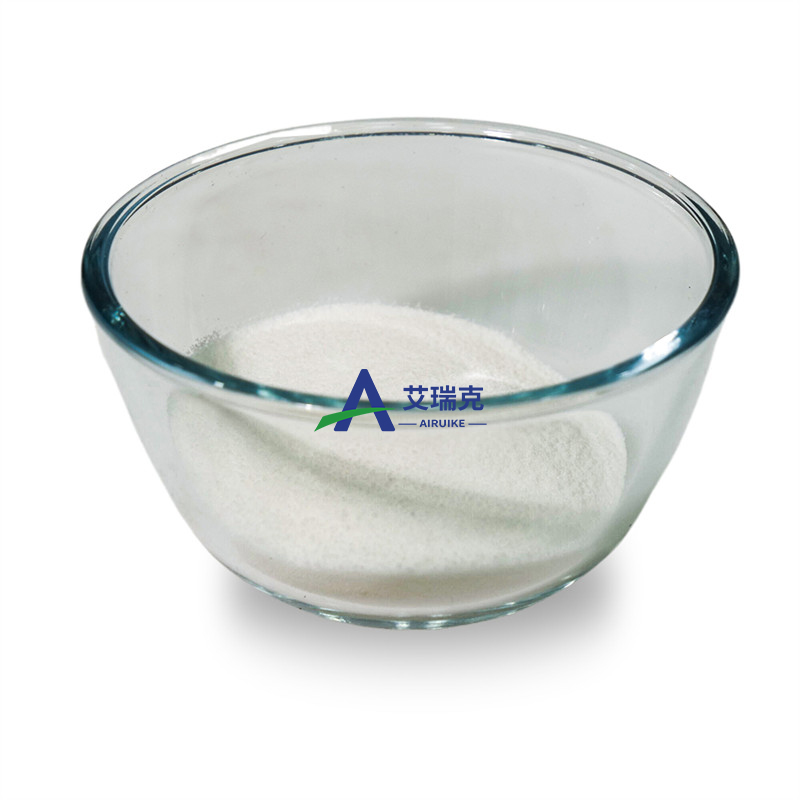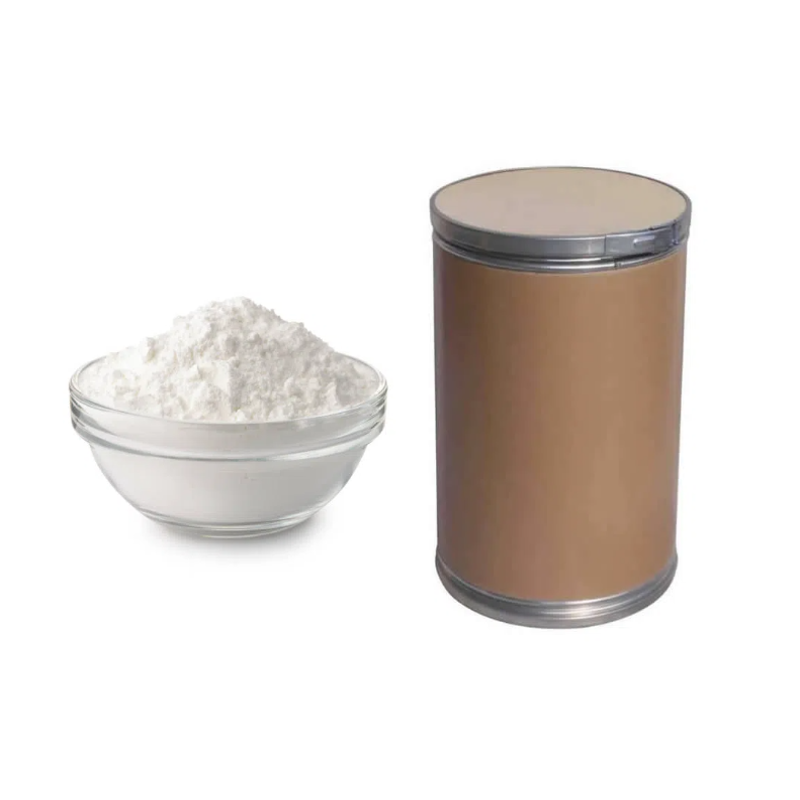-
Categories
-
Pharmaceutical Intermediates
-
Active Pharmaceutical Ingredients
-
Food Additives
- Industrial Coatings
- Agrochemicals
- Dyes and Pigments
- Surfactant
- Flavors and Fragrances
- Chemical Reagents
- Catalyst and Auxiliary
- Natural Products
- Inorganic Chemistry
-
Organic Chemistry
-
Biochemical Engineering
- Analytical Chemistry
-
Cosmetic Ingredient
- Water Treatment Chemical
-
Pharmaceutical Intermediates
Promotion
ECHEMI Mall
Wholesale
Weekly Price
Exhibition
News
-
Trade Service
Xu Yuwen, Department of Pharmacy, Shuguang Hospital, Shanghai University of Traditional Chinese Medicine, 50 years old, went to the hospital for frequent urination, urgency, painful urination, and no fever
.
After examination, urine routine leukocytosis, no red blood cells, protein, diagnosis of acute cystitis
.
Give oral antibiotic treatment, order more drinking water, and do further urine bacterial culture and drug sensitivity test
.
After one week of treatment, the symptoms disappeared completely, and the urine routine, renal function, and bladder ultrasound were all normal
.
1 Composition of the urinary system The urinary system is composed of kidneys, ureters, bladder, and urethra
.
The kidney is located at the waist, one on the left and one on the left
.
It is not only an organ for human urine production and excretion, but also an endocrine organ
.
The kidneys excrete metabolic waste, excess water and physiological substances such as sodium, potassium, and chloride ions by producing urine to maintain the stability of the body's environment
.
In addition, the kidneys can also produce and secrete some endogenins, which can regulate blood pressure
.
Urine flows into the bladder through the ureter
.
When the urine reaches a certain amount in the bladder, there is a requirement for urination
.
After every time a normal person urinates, there is a small amount of residual urine in the bladder, about 10-15ml, and more for the elderly
.
Increased residual urine can easily lead to lower urinary tract infections
.
The female urethra is short and close to the vagina and anus, so the incidence of urinary tract infection is higher than that of men
.
2 The meaning and symptoms of urinary tract infection Urinary tract infection refers to the invasion of pathogenic microorganisms into the urinary tract, causing inflammation of the urinary tract mucosa.
It is a common and frequently-occurring disease in clinical practice
.
The microorganisms that cause urinary tract infections include bacteria, viruses, molds, etc.
Among them, bacterial infections are the most common, and the common ones are urethritis, cystitis, and pyelonephritis
.
Frequent urination, urgency, and dysuria are the main symptoms of urinary tract infections, which are commonly referred to as urinary tract irritation symptoms in clinical practice
.
Frequent urination refers to an increase in the frequency of urination.
Normal adults urinate 4-6 times during the day and 0-2 times after going to bed at night
.
With age, climate, water intake and environment changes, or people with diabetes, renal dysfunction, etc.
, the number of times and the amount of urine each time are also different
.
Urinary urgency refers to the urgency to urinate when urinating, and it is difficult to control.
When the urinary intention comes, it is necessary to urinate immediately, and it often coexists with frequent urination
.
Urinary pain refers to pain in the urethra, bladder and perineum when urinating
.
Lower urinary tract infections generally do not cause back pain
.
3 What checks should be done for urinary tract infection? Glomerulonephritis in urinary tract infection has great harm to people's health
.
Routine urine examination and renal function examination are one of the most commonly used clinical examination methods
.
Urine tests include urine color, transparency, pH and the like
.
Red blood cells and white blood cells should be within the normal range
.
Urinary tract infections may also have small or trace amounts of protein, and the qualitative urinary protein is within (+)
.
4 Treatment of urinary tract infections Urinary tract infections are mostly treated with antibiotics.
At present, quinolones and cephalosporins are used more frequently
.
Quinolones include norfloxacin, ciprofloxacin, levofloxacin, and morefloxacin
.
This class of drugs can affect the cartilage development of children and fetuses.
Children and pregnant women should use it with caution
.
Cephalosporins include cefuroxime, ceftazidime, ceftriaxone and so on
.
Sulfonamides need to drink plenty of water during medication, and sodium bicarbonate should be added for long-term medication.
Those with allergies should not use it
.
Penicillin drugs are of low toxicity, but those who are allergic to penicillin are forbidden, and skin test is required before injection
.
Aminoglycoside amikacin, gentamicin, etc.
, adverse reactions include ototoxicity, nephrotoxicity, neuromuscular blockade and other allergic reactions
.
Do not use it for patients with pyelonephritis with renal insufficiency
.
In addition, urinary tract infections can also be treated with traditional Chinese medicine
.
Commonly used Chinese patent medicines include Relinqing Capsules, Sanjin Tablets, Ningmitai Capsules, Shenshu Granules, Zhibai Dihuang Pills and so on
.
Prevention of urinary tract infection is the main focus, and personal hygiene should be paid attention to at ordinary times.
Women should pay attention to personal hygiene during menstruation and married life
.
Drink plenty of water, have a nutritious diet, have a balanced mindset, exercise your body, strengthen your physique, and improve your resistance to diseases
.
Source: Shanghai Pharmaceutical News
.
After examination, urine routine leukocytosis, no red blood cells, protein, diagnosis of acute cystitis
.
Give oral antibiotic treatment, order more drinking water, and do further urine bacterial culture and drug sensitivity test
.
After one week of treatment, the symptoms disappeared completely, and the urine routine, renal function, and bladder ultrasound were all normal
.
1 Composition of the urinary system The urinary system is composed of kidneys, ureters, bladder, and urethra
.
The kidney is located at the waist, one on the left and one on the left
.
It is not only an organ for human urine production and excretion, but also an endocrine organ
.
The kidneys excrete metabolic waste, excess water and physiological substances such as sodium, potassium, and chloride ions by producing urine to maintain the stability of the body's environment
.
In addition, the kidneys can also produce and secrete some endogenins, which can regulate blood pressure
.
Urine flows into the bladder through the ureter
.
When the urine reaches a certain amount in the bladder, there is a requirement for urination
.
After every time a normal person urinates, there is a small amount of residual urine in the bladder, about 10-15ml, and more for the elderly
.
Increased residual urine can easily lead to lower urinary tract infections
.
The female urethra is short and close to the vagina and anus, so the incidence of urinary tract infection is higher than that of men
.
2 The meaning and symptoms of urinary tract infection Urinary tract infection refers to the invasion of pathogenic microorganisms into the urinary tract, causing inflammation of the urinary tract mucosa.
It is a common and frequently-occurring disease in clinical practice
.
The microorganisms that cause urinary tract infections include bacteria, viruses, molds, etc.
Among them, bacterial infections are the most common, and the common ones are urethritis, cystitis, and pyelonephritis
.
Frequent urination, urgency, and dysuria are the main symptoms of urinary tract infections, which are commonly referred to as urinary tract irritation symptoms in clinical practice
.
Frequent urination refers to an increase in the frequency of urination.
Normal adults urinate 4-6 times during the day and 0-2 times after going to bed at night
.
With age, climate, water intake and environment changes, or people with diabetes, renal dysfunction, etc.
, the number of times and the amount of urine each time are also different
.
Urinary urgency refers to the urgency to urinate when urinating, and it is difficult to control.
When the urinary intention comes, it is necessary to urinate immediately, and it often coexists with frequent urination
.
Urinary pain refers to pain in the urethra, bladder and perineum when urinating
.
Lower urinary tract infections generally do not cause back pain
.
3 What checks should be done for urinary tract infection? Glomerulonephritis in urinary tract infection has great harm to people's health
.
Routine urine examination and renal function examination are one of the most commonly used clinical examination methods
.
Urine tests include urine color, transparency, pH and the like
.
Red blood cells and white blood cells should be within the normal range
.
Urinary tract infections may also have small or trace amounts of protein, and the qualitative urinary protein is within (+)
.
4 Treatment of urinary tract infections Urinary tract infections are mostly treated with antibiotics.
At present, quinolones and cephalosporins are used more frequently
.
Quinolones include norfloxacin, ciprofloxacin, levofloxacin, and morefloxacin
.
This class of drugs can affect the cartilage development of children and fetuses.
Children and pregnant women should use it with caution
.
Cephalosporins include cefuroxime, ceftazidime, ceftriaxone and so on
.
Sulfonamides need to drink plenty of water during medication, and sodium bicarbonate should be added for long-term medication.
Those with allergies should not use it
.
Penicillin drugs are of low toxicity, but those who are allergic to penicillin are forbidden, and skin test is required before injection
.
Aminoglycoside amikacin, gentamicin, etc.
, adverse reactions include ototoxicity, nephrotoxicity, neuromuscular blockade and other allergic reactions
.
Do not use it for patients with pyelonephritis with renal insufficiency
.
In addition, urinary tract infections can also be treated with traditional Chinese medicine
.
Commonly used Chinese patent medicines include Relinqing Capsules, Sanjin Tablets, Ningmitai Capsules, Shenshu Granules, Zhibai Dihuang Pills and so on
.
Prevention of urinary tract infection is the main focus, and personal hygiene should be paid attention to at ordinary times.
Women should pay attention to personal hygiene during menstruation and married life
.
Drink plenty of water, have a nutritious diet, have a balanced mindset, exercise your body, strengthen your physique, and improve your resistance to diseases
.
Source: Shanghai Pharmaceutical News







